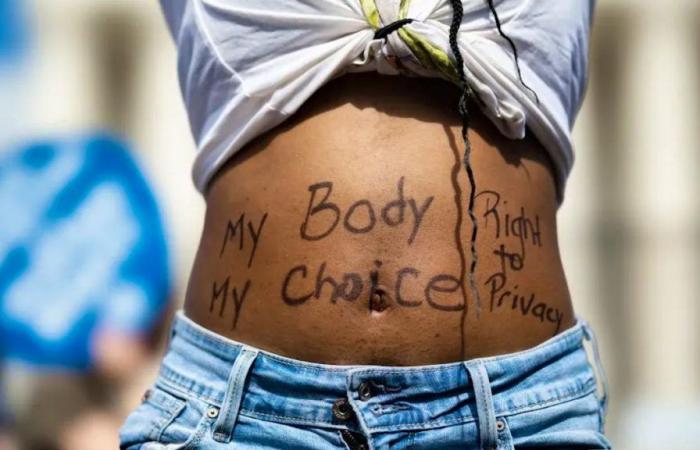According to the NGO Center for Reproductive Rights (CRR), only 34% of women of childbearing age live in countries (77 in total) where abortion is authorized on simple request. According to the same source, clandestine abortions cause 39,000 deaths per year. In March, France became the first country to explicitly include voluntary termination of pregnancy (IVG) in its Constitution.
Here is an overview of abortion rights around the world.
A sometimes very recent right
Over the past 30 years, more than 60 countries have changed their legislation to facilitate access to abortion, according to the CRR, an organization defending the right to abortion.
In Ireland, abortion has only been legal since 2018, after a historic referendum. It was also liberalized in 2019 in Northern Ireland, the only part of the United Kingdom where it was still banned. New Zealand only decriminalized abortion in 2020. In Australia, New South Wales in September 2019 became the last state in the country to decriminalize abortion.
In Thailand, abortion was decriminalized in early 2021 and abortions were fully legalized in 2022 up to 20 weeks of pregnancy. Also in Asia, the highest court in South Korea ordered the lifting of the ban in 2019.
In Africa, Benin authorized abortions in 2021 while in 2022, the president of Sierra Leone gave the green light to decriminalization. On the South American continent, the right to abortion has seen progress in several countries: in Colombia, abortion was legalized at the beginning of 2022, whatever the reason, before 24 weeks of pregnancy. In Mexico, following two decisions by the Supreme Court in 2021 and 2023, abortion up to twelve weeks of gestation has been decriminalized in around fifteen states.
Prohibited or very limited
Abortion remains prohibited in around twenty countries, particularly in Africa and Latin America, according to the CRR. El Salvador adopted draconian legislation in 1998 which prohibits all abortions, even in cases of danger to the health of the mother or child, and provides for penalties of up to eight years in prison.
In Europe, the total ban remains an exception (Andorra and Vatican).
In Malta, where abortions were previously prohibited, a minimum authorization was passed in June 2023, in the event of danger to the life of the mother and when the fetus is not viable.
In several other countries, abortion is only authorized to save the mother: this is the case in Nigeria, Libya, Uganda, South Sudan, Tanzania, Iran, Afghanistan, Yemen, Bangladesh, Burma, Sri Lanka, Guatemala , Paraguay or Venezuela, according to the CRR.
In Brazil and Chile, access to abortion is limited to cases of rape, risks for the mother or serious malformations of the fetus. In Brazil, a text currently being examined even provides for penalties of up to 20 years in prison if the pregnancy is terminated after 22 weeks, including in cases of rape.
The American case
The United States offers very mixed rights on abortion since the Supreme Court revoked, in June 2022, the famous Roe v. Wade who, since 1973, guaranteed the right of American women to have an abortion. This decision left each State free to authorize them or not.
Result: twenty states, mainly located in the south and center, imposed restrictions or bans. On the contrary, states on the east and west coasts of the country have adopted new guarantees to protect the right to abortion.
Tightening of bans or restrictions
In some countries, bans or restrictions on access to abortion have been tightened in recent years: Honduras, which prohibits abortion including in cases of rape or incest, serious malformation of the fetus or when life or the health of the mother are threatened, approved in January 2021 a constitutional reform making any change in legislation more difficult.
In Poland, abortion is only permitted in cases of rape or incest, or when the mother’s life is in danger, and recent attempts to liberalize the law have failed.
The rules for abortions have been tightened in Hungary: since September 2022 a woman wishing to have an abortion must be confronted with the “vital functions” of the fetus, such as listening to its heartbeat.
(afp)






